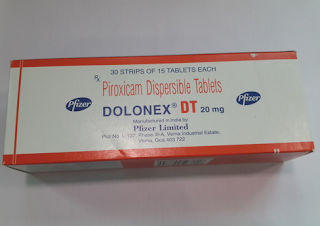Sinus headaches
Sinus headaches
Overview
Sinus headaches are headaches that may feel like an infection in the sinuses (sinusitis). You may feel pressure around your eyes, cheeks and forehead. Perhaps your head throbs.However, many people who assume they have headaches from sinusitis, including many who have received such a diagnosis, actually have migraines or tension headaches.
Symptoms
Signs and symptoms of sinus headaches — regardless of cause — may include:- Pain, pressure and fullness in your cheeks, brow or forehead
- Worsening pain if you bend forward or lie down
- Stuffy nose
- Fatigue
- Achy feeling in your upper teeth
Sinusitis or migraine?
Migraines and headaches from sinusitis are easy to confuse because the signs and symptoms of the two types of headaches often overlap.Both sinusitis and migraine headache pain often gets worse when you bend forward. Migraine can also be accompanied by various nasal signs and symptoms — including congestion, facial pressure and a clear, watery nasal discharge. In fact, studies have shown that approximately 90 percent of people who see a doctor for sinus headaches are found to have migraines instead.
Sinusitis, however, usually isn't associated with nausea or vomiting or aggravated by noise or bright light — all common features of migraines.
Sinusitis usually occurs after a viral upper respiratory infection or cold and includes thick, discolored nasal mucus, decreased sense of smell, and pain in one cheek or upper teeth.
When to see a doctor
Consult your doctor if:- Your headache symptoms occur more than 15 days a month or require frequent over-the-counter pain medicine
- You have a severe headache, and over-the-counter pain medicine doesn't help
- You miss school or work because of frequent headaches or the headaches interfere with your daily life
Causes
Sinus headaches are usually associated with migraines or other forms of headaches.
Sinus headaches are associated with pain and pressure in the face and sinuses and can cause nasal symptoms. Most of these headaches are not caused by sinus infections and should not be treated with antibiotics.
Risk factors
Sinus headaches can affect anyone but may be more likely if you have:
- A previous history of migraines or headaches
- A family history of migraines or headaches
- Hormonal changes associated with headaches
Prevention
Whether or not you take preventive medications, you may benefit from lifestyle changes that can help reduce the number and severity of headaches. One or more of these suggestions may be helpful for you:- Avoid triggers. If certain foods or odors seem to have triggered your headaches in the past, avoid them. Your doctor may recommend you reduce your caffeine and alcohol intake and avoid tobacco.
In general, establish a daily routine with regular sleep patterns and regular meals. In addition, try to control stress.
- Exercise regularly. Regular aerobic exercise reduces tension and can help prevent headaches. If your doctor agrees, choose any aerobic exercise you enjoy, including walking, swimming and cycling.
Warm up slowly, however, because sudden, intense exercise can cause headaches.
Obesity is also thought to be a factor in headaches, and regular exercise can help you maintain a healthy weight or lose weight.
- Reduce the effects of estrogen. If you're a woman who has headaches and estrogen seems to trigger or make your headaches worse, you may want to avoid or reduce the medications you take that contain estrogen.
These medications include birth control pills and hormone replacement therapy. Talk with your doctor about the appropriate alternatives or dosages for you.




Comments
Post a Comment